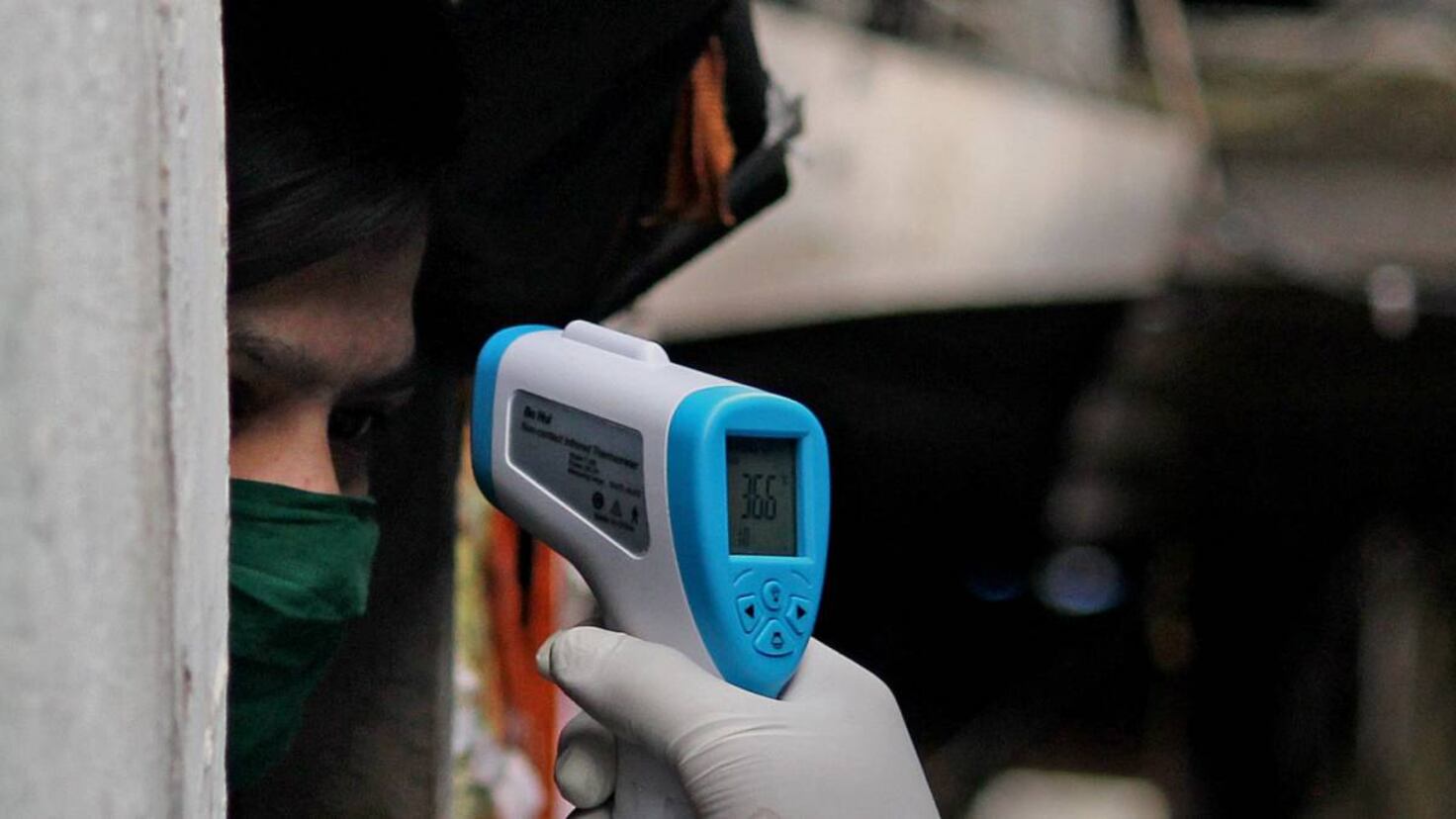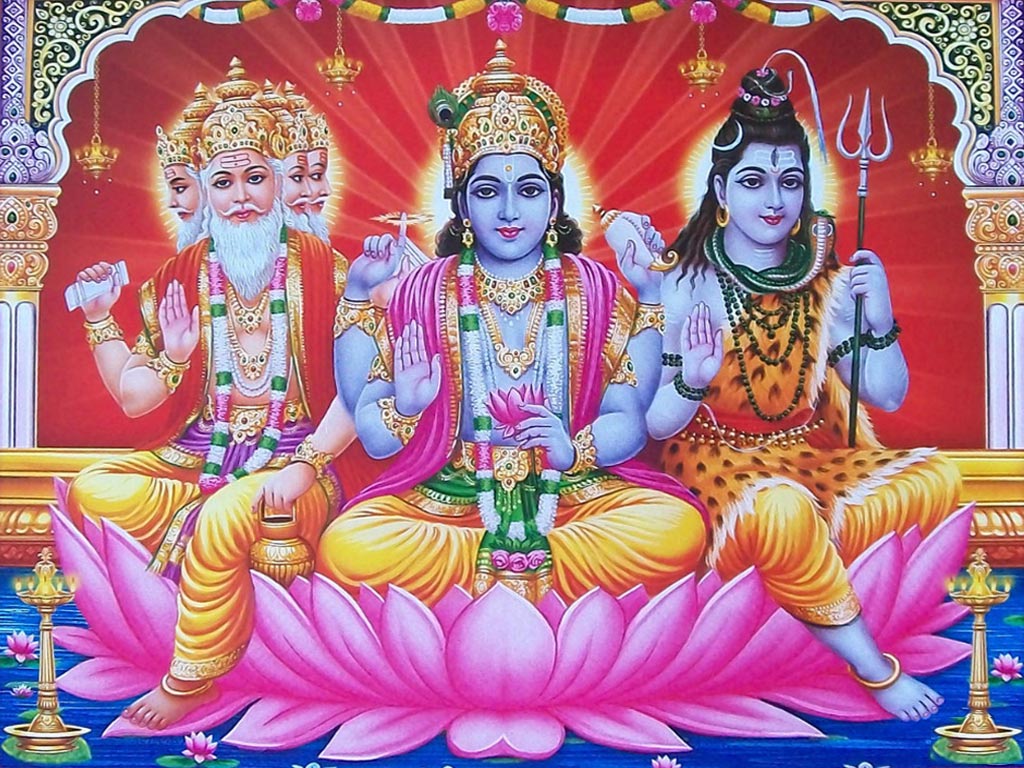Background
I am not an ayurved 'doctor' or 'specialist'. I am describing the foundational principles of Ayurved as I understand it.
Ayur-ved simply means knowledge of life. Ayurved is based on the principle of 'design pattern' as seen in the evolution of matter and biological beings in the Universe.
Simply put, Ayurved sees a human body as a matrix of information processing systems and their responses, metabolic systems and their responses and modifiers of informational and metabolic pathways. I see it as a 'frame-work' for analyzing human body rather than as a separate system of medicine. With sufficient research, it could be used as a frame-work in modern medicine too. The framework of Ayurveda stems from a design pattern seen in evolution of Universe.
Let me be clear, that this understanding of Ayurveda, the definitions of Pitta, vAta and Kapha are what I gleam from the design pattern in the evolution of the Universe.
Observer drives evolution
Universe seems to have a design pattern, which I explained in my book titled 'Inspiring Palita Perspectives ' (1).
The core component of the design pattern is the presence of an 'observer' that is not part of evolution, but drives the evolution. If Universe is visualized as a Yajna, an evolutionary sacrifice, then the pancha prana are
The tri-gunas in Universe
Yet another component of the design pattern is the manifestation of Sattva, Rajas and Tamo guna in every evolution. Sattva is micro-states of matter, entropy, processing information content or knowledge. Any system can be described in terms of its 'entropy' or information content. Rajas is energy, enthalpy or chemical or metabolic reactions. Any system can also be described in terms of its 'enthalpy'. These are two different but equivalent perspectives of the same system. Lack or reduction of entropy/sattva or energy/enthalpy is Tamas. Tamas counteracts sattva and rajas.
Any (thermodynamic) system can be described in terms of its 'enthalpy'/sattva or energy/rajas content. Universe is a thermodynamic system. Biological beings including human beings are thermodynamic systems. Our thoughts are also, in a way, manifestation of thermodynamic systems.
When energy is added to thermodynamic system, it can become a system with more energy or more entropy or a mix of the two. In particular when energy with similar micro-states as that of a system is added to it, the resultant system is more energetic. When energy with different micro-states as that of a system is added to it, the resultant system has more entropy.
The same happens with our thoughts also. When we surround ourselves with same information content or same set of people, when we fail to challenge our own thoughts and ideas, when we reinforce the same ideas, we become passionate or energetic. This is rajasic. When we surround ourselves with different sets of people, when we challenge our own thoughts and ideas, when we receive and process different set of ideas, we become knowledgeable and logical. This is sattvic.
The tri-gunas of human body
Our human body, being a thermodynamic system, follows a similar design pattern. Human body is said to have pancha-prAna or five metabolic organ systems (1). They are
These tri-gunas in human body are called Pitta (sattva/information processing), Kapha (Rajas/Metabolism) and vAta (modification of information processing and metabolism).
In human beings, Pitta is information processing (both electrical signaling and chemical messaging) in every organ system. Kapha is the metabolic processing associated with every organ system. vAta is the controller of information processing and metabolic systems by immune systems, informational and metabolic pathways.
In a disease-less human body, the information processing, metabolism and the control mechanisms of these are in a 'balance' in every organ system. A 'diseased' state occurs when either information processing or metabolism or control of these gets affected in any organ system.
pitta
Our information processing systems are electrical signaling system of nervous system and chemical messaging harmonal systems. The health of these systems and their responses is denoted by 'Pitta'.
These systems are connected to all organ systems of our body. That is every organ system of our body is doing information processing or connected to information processing systems (electrical signaling and chemical messaging) or has 'pitta'.
'Pitta' disorders are actually informational pathway disorders (at times marked by increase in bile) and could lead to schizophrenia and other mental disorders. Hence Pitta is associated with 'madness' also.
'Gut' is often called the second brain with a neuronal system of its own that is connected to brain.
Gut controls memory, mood-swings etc due to its interaction with nervous system. Gut health itself is regulated by the bile production done by liver. Hence pitta is associated with bile production is often used to denote the health of information processing systems.
kapha
Our body's metabolising systems primarily use oxygen carried in the blood for their chemical reactions. The health of the metabolizing systems and their responses is denoted by 'Kapha'.
Every organ system of our body does some metabolic activities. Hence every organ system can be said to have 'kapha'.
When metabolic activities of excretory systems or circulatory systems do not function well, 'phelgm' gets built up in lungs. When respiratory system does not function well, then also lungs get affected with phlegm. Hence Kapha is associated with phlegm and used to indicate the health of metabolic systems.
vAta
The informational processing and metabolic systems of our body are controlled by our immune system responses and the health of informational or metabolic pathways. The health of the immune system and the informational and metabolic pathways is denoted by vAta.
Every organ system is connected to immune system. They are also connected to metabolism and information processing in some way. Hence every organ system is said to have 'vAta.
vAta is generally associated with 'gas' because immune system response can trigger bacterial infections or imbalances which result in 'gas' in stomach. vAta is also associated with joint pains (rheumatoid athritis) or even skin issues because auto-immune disorders lead to these kind of troubles. vAta is also associated with paralysis because paralysis occurs due to blockages in the informational or metabolic pathways.
The 'wholistic' Ayurveda
Every organ system of our body has information processing, metabolism and control of these two. Hence every organ has Pitta, Kapha and vAta. When they co-ordinate well and are 'controlled' well they are said to be in 'balance'.
In the 'wholistic' Ayurveda, it is recognized that every organ system has information processing, metabolism and pathways/immune systems that control the information processing and metabolism. Hence the effort has to be understand what's going wrong in the organ system in these three dimensions and address them.
External manifestations of pitta, vAta and kapha
Either we are not there in the state of 'wholistic' Ayurveda or we lost a whole lot of knowledge in it. What is practised currently is by understanding the external manifestations of pitta, vAta and kapha.
For eg., when a virus or any foreign body attack happens on our organ systems, the immune system responds or the vAta is put to imbalance. But then the immune system often over-responds depending on the multiplication of foreign body. The response of immune system can drown the lungs and kidney cannot excrete out at the same rate as which the lungs are getting drowned with fluids. Thus the metabolic pathways go into imbalance and 'kapha' is also trigged.
Similarly when circulatory system is not functioning well (heart not functioning well), then the metabolic pathway is blocked or vAta is put to imbalance. This results in kidney not functioning well and the result is phlegm gets accumulated in lungs, thus triggering kapha.
Overeating foods such as meat, cheese, milk, saturated fats could lead to more bile production and harm the gut lining. This lead to vAta, the blockages in information pathways as gut neurons are affected. In turn this could cause mood-swings, memory loss and cognitive disabilities. Thus vAta leads to Pitta. Reversely food rich in unsaturated fatty acids or those that promote gut-health (probiotic like curd) can improve memory, emotional responses and behaviors. Thus a reduced vAta leads to a better Pitta.
Sleeplessness, Mental exhaustion modify the information processing (nervous and hormonal) systems (pitta) and trigger more bile production to digest foods to compensate for the lack of rest to gut. Such hormonal or signaling disorders can also lead to decrease in production of bile and hence not breaking down of lipids in the gut. This in turn can blocks the informational pathways from the gut causing mood-swings and loss of memory capabilities. Thus pitta can lead to vAta.
For eg., rheumatoid arthritis or many skin problems like psoriasis are due to auto-immune disorders. Immune system being the modifier of informational processing and metabolic systems get diseased or over respond on their own in these cases resulting in inflammation of the joints or dry-skin. Thus vAta is put to imbalance. Thus vAta can lead to joint pains or psoriasis kind of disorders.
Monitoring the pitta, vAta and kapha
The monitoring of pitta, vata and kapha are currently done based on the external manifestations as described above.
Pitta is monitored by estimating/understanding the bile production or gut health, sleep patterns and mental performance. Kapha is monitored by the health of lungs, performance of the excretory systems. vAta is monitored by the identifying metabolic and informational pathway blockages as indicated by performance of muscles and joints and immune disorders as indicated by disorders of skin or gas in stomach.
Plant or animal products that are rich in vitamins, anti-bacterial and anti-inflammatory manage 'vAta' by promoting better immunity and clearing up blocks in metabolic pathways.
Plant or animal products that help manage better gut health, sleep or mental health manage 'pitta' by promoting better information processing capabilities.
Plant or animal products that help manage better excretion or circulation manage 'kapha' by promoting better metabolism.
Challenges in Ayurvedic framework
These are the challenges for ayurvedic framework as I see it.
1. https://www.amazon.com/dp/B082LMSJSL
I am not an ayurved 'doctor' or 'specialist'. I am describing the foundational principles of Ayurved as I understand it.
Ayur-ved simply means knowledge of life. Ayurved is based on the principle of 'design pattern' as seen in the evolution of matter and biological beings in the Universe.
Simply put, Ayurved sees a human body as a matrix of information processing systems and their responses, metabolic systems and their responses and modifiers of informational and metabolic pathways. I see it as a 'frame-work' for analyzing human body rather than as a separate system of medicine. With sufficient research, it could be used as a frame-work in modern medicine too. The framework of Ayurveda stems from a design pattern seen in evolution of Universe.
Let me be clear, that this understanding of Ayurveda, the definitions of Pitta, vAta and Kapha are what I gleam from the design pattern in the evolution of the Universe.
Observer drives evolution
Universe seems to have a design pattern, which I explained in my book titled 'Inspiring Palita Perspectives ' (1).
The core component of the design pattern is the presence of an 'observer' that is not part of evolution, but drives the evolution. If Universe is visualized as a Yajna, an evolutionary sacrifice, then the pancha prana are
- Dark energy that expands the Universe without contributing to the energy in the Universe,
- Dark matter that fills the space not interacting with matter
- Catalysts that drive the evolution of Chemical reactions
- Enzymes that drive the evolution of biological beings
- Witnessing/observing thought or manas-sAksi' that drives the evolution of human beings
The tri-gunas in Universe
Yet another component of the design pattern is the manifestation of Sattva, Rajas and Tamo guna in every evolution. Sattva is micro-states of matter, entropy, processing information content or knowledge. Any system can be described in terms of its 'entropy' or information content. Rajas is energy, enthalpy or chemical or metabolic reactions. Any system can also be described in terms of its 'enthalpy'. These are two different but equivalent perspectives of the same system. Lack or reduction of entropy/sattva or energy/enthalpy is Tamas. Tamas counteracts sattva and rajas.
Any (thermodynamic) system can be described in terms of its 'enthalpy'/sattva or energy/rajas content. Universe is a thermodynamic system. Biological beings including human beings are thermodynamic systems. Our thoughts are also, in a way, manifestation of thermodynamic systems.
When energy is added to thermodynamic system, it can become a system with more energy or more entropy or a mix of the two. In particular when energy with similar micro-states as that of a system is added to it, the resultant system is more energetic. When energy with different micro-states as that of a system is added to it, the resultant system has more entropy.
The same happens with our thoughts also. When we surround ourselves with same information content or same set of people, when we fail to challenge our own thoughts and ideas, when we reinforce the same ideas, we become passionate or energetic. This is rajasic. When we surround ourselves with different sets of people, when we challenge our own thoughts and ideas, when we receive and process different set of ideas, we become knowledgeable and logical. This is sattvic.
The tri-gunas of human body
Our human body, being a thermodynamic system, follows a similar design pattern. Human body is said to have pancha-prAna or five metabolic organ systems (1). They are
- Signaling and Hormonal system (udAna)
- Circulatory system (vyAna)
- Digestive system (samAna)
- Excretory system (Apana)
- Respiratory system (prAna)
These tri-gunas in human body are called Pitta (sattva/information processing), Kapha (Rajas/Metabolism) and vAta (modification of information processing and metabolism).
In human beings, Pitta is information processing (both electrical signaling and chemical messaging) in every organ system. Kapha is the metabolic processing associated with every organ system. vAta is the controller of information processing and metabolic systems by immune systems, informational and metabolic pathways.
In a disease-less human body, the information processing, metabolism and the control mechanisms of these are in a 'balance' in every organ system. A 'diseased' state occurs when either information processing or metabolism or control of these gets affected in any organ system.
pitta
Our information processing systems are electrical signaling system of nervous system and chemical messaging harmonal systems. The health of these systems and their responses is denoted by 'Pitta'.
These systems are connected to all organ systems of our body. That is every organ system of our body is doing information processing or connected to information processing systems (electrical signaling and chemical messaging) or has 'pitta'.
'Pitta' disorders are actually informational pathway disorders (at times marked by increase in bile) and could lead to schizophrenia and other mental disorders. Hence Pitta is associated with 'madness' also.
'Gut' is often called the second brain with a neuronal system of its own that is connected to brain.
Gut controls memory, mood-swings etc due to its interaction with nervous system. Gut health itself is regulated by the bile production done by liver. Hence pitta is associated with bile production is often used to denote the health of information processing systems.
kapha
Our body's metabolising systems primarily use oxygen carried in the blood for their chemical reactions. The health of the metabolizing systems and their responses is denoted by 'Kapha'.
Every organ system of our body does some metabolic activities. Hence every organ system can be said to have 'kapha'.
When metabolic activities of excretory systems or circulatory systems do not function well, 'phelgm' gets built up in lungs. When respiratory system does not function well, then also lungs get affected with phlegm. Hence Kapha is associated with phlegm and used to indicate the health of metabolic systems.
vAta
The informational processing and metabolic systems of our body are controlled by our immune system responses and the health of informational or metabolic pathways. The health of the immune system and the informational and metabolic pathways is denoted by vAta.
Every organ system is connected to immune system. They are also connected to metabolism and information processing in some way. Hence every organ system is said to have 'vAta.
vAta is generally associated with 'gas' because immune system response can trigger bacterial infections or imbalances which result in 'gas' in stomach. vAta is also associated with joint pains (rheumatoid athritis) or even skin issues because auto-immune disorders lead to these kind of troubles. vAta is also associated with paralysis because paralysis occurs due to blockages in the informational or metabolic pathways.
The 'wholistic' Ayurveda
Every organ system of our body has information processing, metabolism and control of these two. Hence every organ has Pitta, Kapha and vAta. When they co-ordinate well and are 'controlled' well they are said to be in 'balance'.
In the 'wholistic' Ayurveda, it is recognized that every organ system has information processing, metabolism and pathways/immune systems that control the information processing and metabolism. Hence the effort has to be understand what's going wrong in the organ system in these three dimensions and address them.
External manifestations of pitta, vAta and kapha
Either we are not there in the state of 'wholistic' Ayurveda or we lost a whole lot of knowledge in it. What is practised currently is by understanding the external manifestations of pitta, vAta and kapha.
For eg., when a virus or any foreign body attack happens on our organ systems, the immune system responds or the vAta is put to imbalance. But then the immune system often over-responds depending on the multiplication of foreign body. The response of immune system can drown the lungs and kidney cannot excrete out at the same rate as which the lungs are getting drowned with fluids. Thus the metabolic pathways go into imbalance and 'kapha' is also trigged.
Similarly when circulatory system is not functioning well (heart not functioning well), then the metabolic pathway is blocked or vAta is put to imbalance. This results in kidney not functioning well and the result is phlegm gets accumulated in lungs, thus triggering kapha.
Overeating foods such as meat, cheese, milk, saturated fats could lead to more bile production and harm the gut lining. This lead to vAta, the blockages in information pathways as gut neurons are affected. In turn this could cause mood-swings, memory loss and cognitive disabilities. Thus vAta leads to Pitta. Reversely food rich in unsaturated fatty acids or those that promote gut-health (probiotic like curd) can improve memory, emotional responses and behaviors. Thus a reduced vAta leads to a better Pitta.
Sleeplessness, Mental exhaustion modify the information processing (nervous and hormonal) systems (pitta) and trigger more bile production to digest foods to compensate for the lack of rest to gut. Such hormonal or signaling disorders can also lead to decrease in production of bile and hence not breaking down of lipids in the gut. This in turn can blocks the informational pathways from the gut causing mood-swings and loss of memory capabilities. Thus pitta can lead to vAta.
For eg., rheumatoid arthritis or many skin problems like psoriasis are due to auto-immune disorders. Immune system being the modifier of informational processing and metabolic systems get diseased or over respond on their own in these cases resulting in inflammation of the joints or dry-skin. Thus vAta is put to imbalance. Thus vAta can lead to joint pains or psoriasis kind of disorders.
Monitoring the pitta, vAta and kapha
The monitoring of pitta, vata and kapha are currently done based on the external manifestations as described above.
Pitta is monitored by estimating/understanding the bile production or gut health, sleep patterns and mental performance. Kapha is monitored by the health of lungs, performance of the excretory systems. vAta is monitored by the identifying metabolic and informational pathway blockages as indicated by performance of muscles and joints and immune disorders as indicated by disorders of skin or gas in stomach.
Plant or animal products that are rich in vitamins, anti-bacterial and anti-inflammatory manage 'vAta' by promoting better immunity and clearing up blocks in metabolic pathways.
Plant or animal products that help manage better gut health, sleep or mental health manage 'pitta' by promoting better information processing capabilities.
Plant or animal products that help manage better excretion or circulation manage 'kapha' by promoting better metabolism.
Challenges in Ayurvedic framework
These are the challenges for ayurvedic framework as I see it.
- I see Ayurveda as an integral part of the overall vedic literature. Since the vedic literature itself is poorly understood, Ayurveda is also poorly understood.
- There is also no central body that promotes standardization of Ayurvedic principles. Hence no standard definitions of Pitta, vAta and Kapha exists across ayurvedic physicians, as far as I know.
- While what we know of 'ayurveda' is only through the external manifestations of pitta, vata and kapha, in-depth of understanding, alignment and standardization of these principles through research studies in the light of modern medicine, can lead to usage of this framework in modern medicine also.
- Knowledge of what plant and animal products work, how and why they work for different diseases, is not well understood. Knowledge of these products have been carried over for generations and we have not invested in modern research enough to understand them better.
- Understanding the symptoms of a patient requires a lot of intelligence and in-depth understanding of how organ systems work, which may be lacking in several self-taught ayurvedic physicians today.
1. https://www.amazon.com/dp/B082LMSJSL








